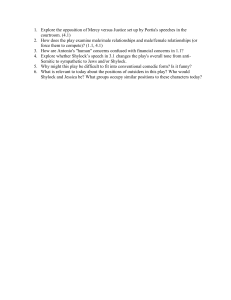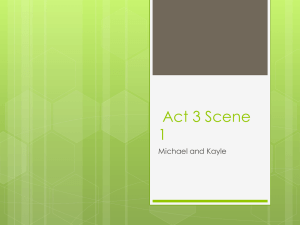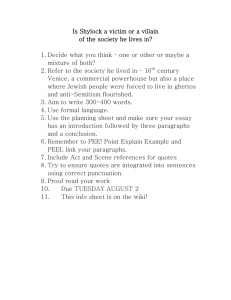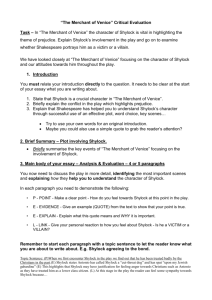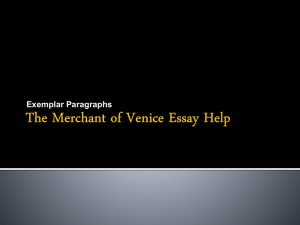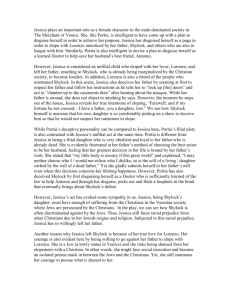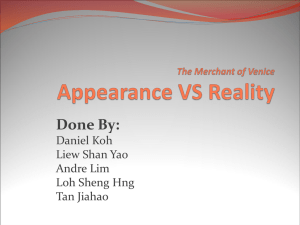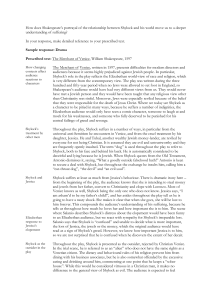Merchant of Venice: Shylock - Villain or Victim? Study Guide
advertisement
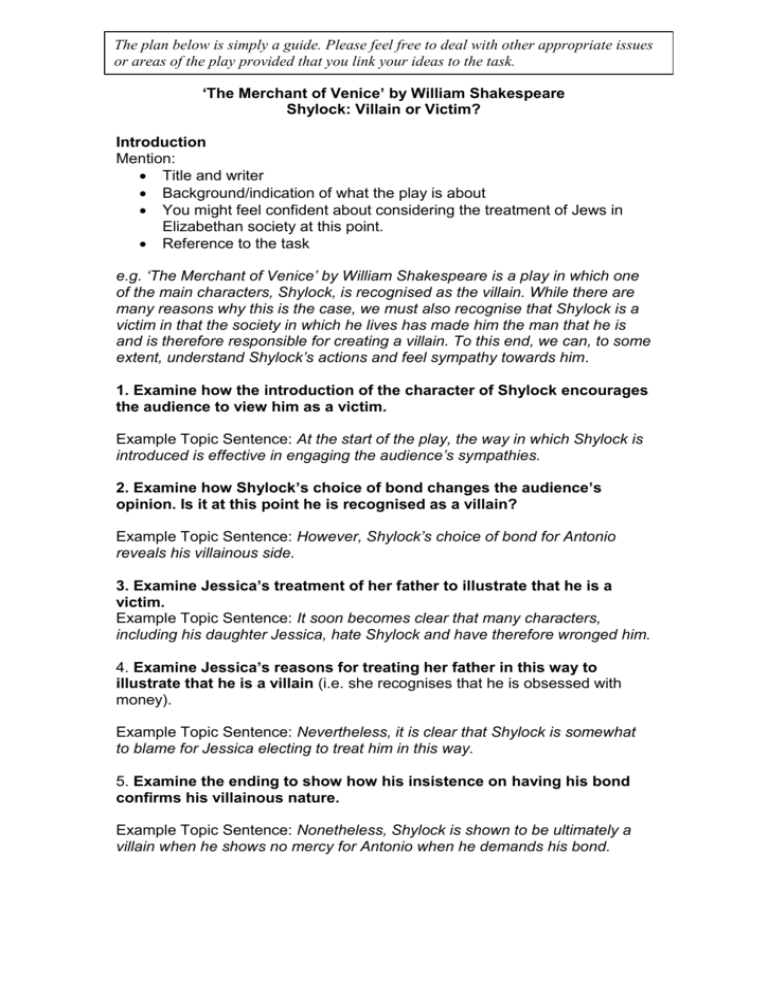
The plan below is simply a guide. Please feel free to deal with other appropriate issues or areas of the play provided that you link your ideas to the task. ‘The Merchant of Venice’ by William Shakespeare Shylock: Villain or Victim? Introduction Mention: Title and writer Background/indication of what the play is about You might feel confident about considering the treatment of Jews in Elizabethan society at this point. Reference to the task e.g. ‘The Merchant of Venice’ by William Shakespeare is a play in which one of the main characters, Shylock, is recognised as the villain. While there are many reasons why this is the case, we must also recognise that Shylock is a victim in that the society in which he lives has made him the man that he is and is therefore responsible for creating a villain. To this end, we can, to some extent, understand Shylock’s actions and feel sympathy towards him. 1. Examine how the introduction of the character of Shylock encourages the audience to view him as a victim. Example Topic Sentence: At the start of the play, the way in which Shylock is introduced is effective in engaging the audience’s sympathies. 2. Examine how Shylock’s choice of bond changes the audience’s opinion. Is it at this point he is recognised as a villain? Example Topic Sentence: However, Shylock’s choice of bond for Antonio reveals his villainous side. 3. Examine Jessica’s treatment of her father to illustrate that he is a victim. Example Topic Sentence: It soon becomes clear that many characters, including his daughter Jessica, hate Shylock and have therefore wronged him. 4. Examine Jessica’s reasons for treating her father in this way to illustrate that he is a villain (i.e. she recognises that he is obsessed with money). Example Topic Sentence: Nevertheless, it is clear that Shylock is somewhat to blame for Jessica electing to treat him in this way. 5. Examine the ending to show how his insistence on having his bond confirms his villainous nature. Example Topic Sentence: Nonetheless, Shylock is shown to be ultimately a villain when he shows no mercy for Antonio when he demands his bond. 6. Examine the outcome for Shylock. Does he get what he deserves at the end of the trial scene? Example Topic Sentence: Finally, Shylock, in many ways, gets what he deserves at the end of the play. Nevertheless, we can still feel a degree of sympathy for him and recognise him to be a victim of the society in which he lives. Conclusion Use a concluding word/phrase Sum up in relation to the task At this point – given all the evidence you have provided, state which side you feel you can agree with the most. Remember to follow the PEER structure when writing your paragraphs. POINT EXAMPLE EXPLAIN REFER TO QUESTION Quotations It is important to include quotations If it is a short quotation e.g. “Hath not a Jew eyes” (Act 3, scene 1, line 52) simply include it in the body of the text. If it is a longer quotation such as: “If every ducat in six thousand ducats Were in six parts, and every part a ducat, I would not draw them; I would have my bond.” (Act IV, Scene 1:L85-87) This will help you to lay out your evidence nice and clearly.
